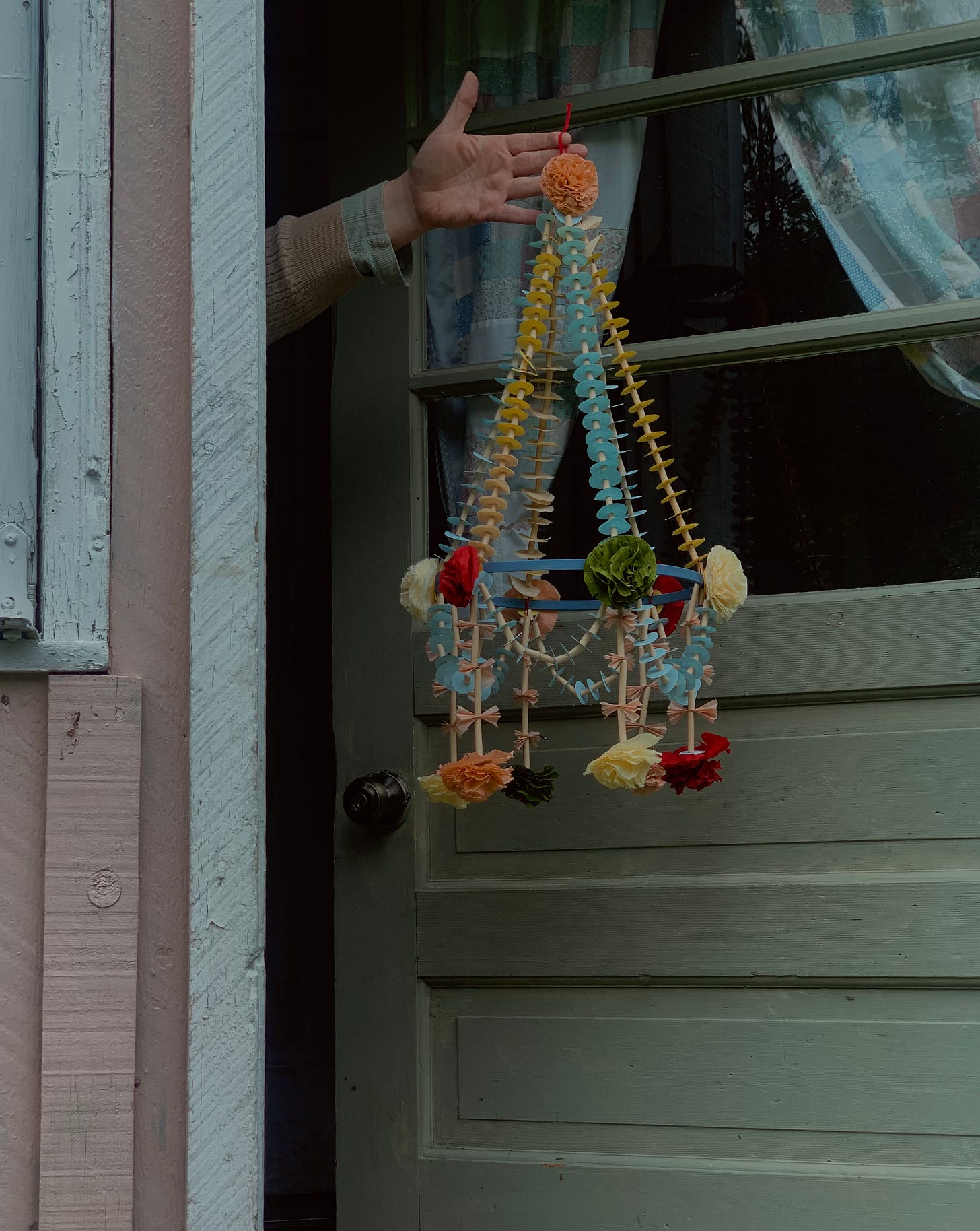Every summer a spider moves into my kitchen. A big mama house spider, either near the front window or up in the corner of a cupboard or in a quiet, high-up spot on a wall. I always let her stay, and she always stays in one place weaving her web and catching flies, and every morning I greet her – usually in my mind and sometimes aloud – she never has a name but I am always polite. It’s not that I like spiders all that much, if I saw one skittering across the floor or in the tub before I drew a bath I wouldn’t feel so friendly. But there’s something about my one house spider in the kitchen every year that does feel friendly – like we’re in it together, me offering her refuge and a safe place to weave a web and her offering me something less obvious, more numinous, not even really known at all but something nonetheless. She’s got her eye on me, and as a woman who believes in all the kinds of house spirits there could be, I graciously accept her protection.
This week between cutting paper circles while I waiting on an oil change and accordion-folding the crepe paper during baseball practice and carefully scrunching paper flowers while dinner cooked for this project, I looked up what the word pajaki (or pajak in the singular) actually means in its original Polish, and to my surprise it’s spider. I assume for the many ways they can resemble them, but I wonder too if there’s another layer of meaning. Originating in pre-Christian pagan culture in Poland, pajaki are reported to have many purposes, and likely have held a variety of meanings and intentions over time. Made traditionally from straw gleaned from the harvest at the end of summer, they were often made to celebrate a successful growing season or to become winter and Christmas decorations. They’ve also been known to be made in spring to protect the coming year’s crops and to look after the home for the year ahead. All over Poland there are traditions of pajaki with a variety of shapes, styles, and colors but some things seem to be true across the regions: they are made from paper and straw and hold a great deal of meaning and heritage. The words that come up over and over are protection, celebration, decoration. As I made my own pajak, knowing exactly where I’d hang it above my kitchen table, I thought of it as a crown and then a protective mama spider, and also just a beautiful, handmade burst of color to adorn our home.
Keep reading with a 7-day free trial
Subscribe to warmly to keep reading this post and get 7 days of free access to the full post archives.





